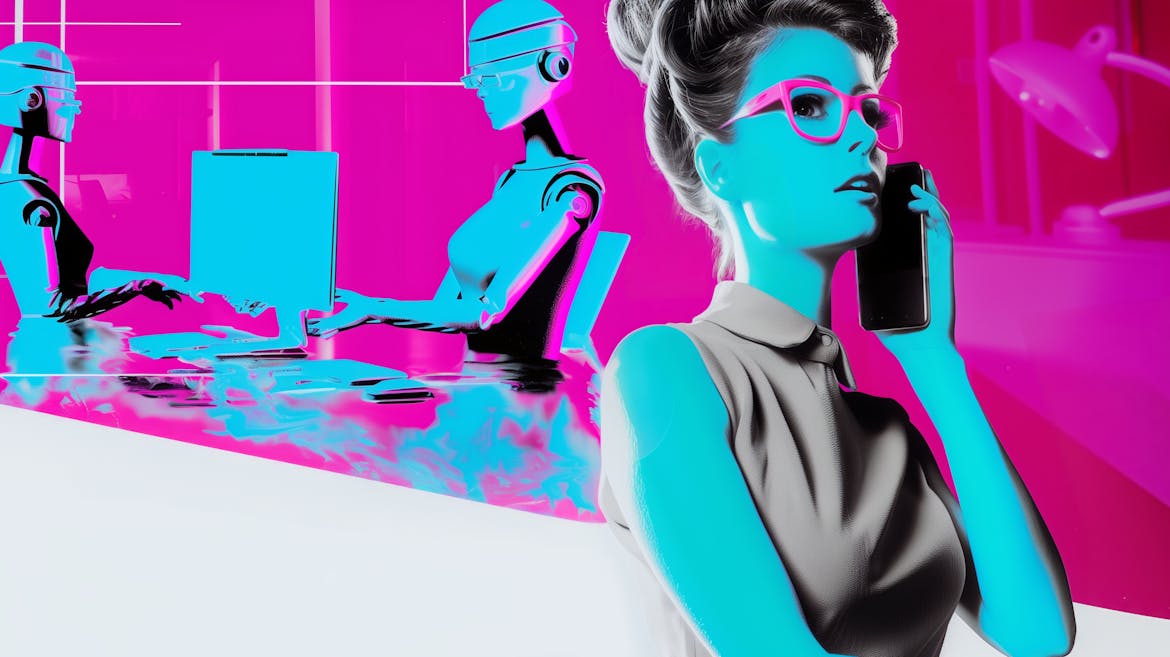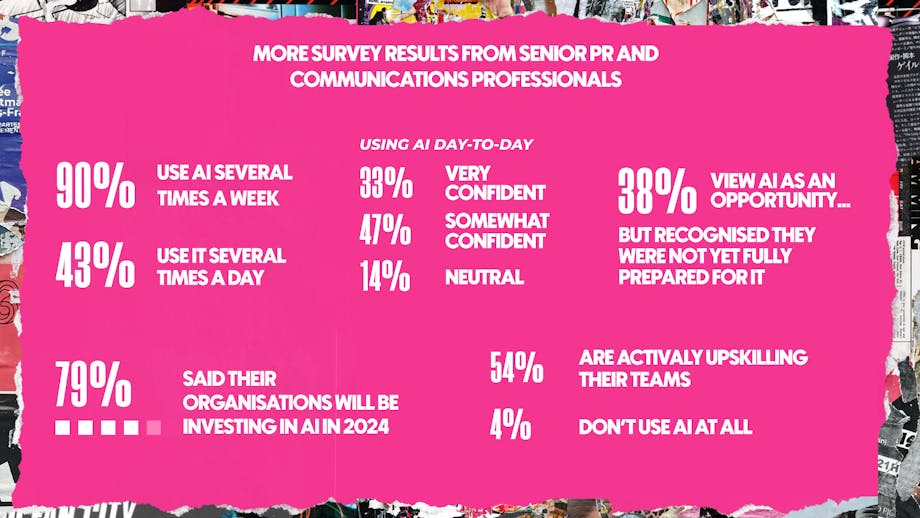
A human touch is still needed during crises
In the words of Detective Spooner (aka Will Smith) in iRobot (a retro reference, by today’s standards), “can a robot write a symphony? Can a robot turn a canvass into a beautiful masterpiece?”
The movie is about the unintended consequences of unchecked technological advancement, and our dependence on it, it also teaches us that often a (human) hero is required to save the day.
And so, with the rise of AI, we wanted to learn where PR professionals would consider leaning on relatively new and untested tech.
We reached out to our research partners over at ImpactSense and together we surveyed 150 senior PR and communications professionals about their willingness to adopt Artificial Intelligence (AI) – and for what purposes.
Perhaps alarmingly, 25% of respondents said they think AI will replace their role one day, and a further 48% somewhat agreed with the sentiment. Only 1% said they disagreed entirely.
Cue existential crisis
While total human replacement remains in the realm of science fiction (for now), where is AI currently being considered for use in PR and comms?
Only 34% of PR leaders would delegate their crisis comms to AI tools, while for media monitoring and analytics, where trust is plentiful, 59% would consider it. Trust in deploying AI for copywriting and visual asset production teeters at around 50/50 among senior staff.
Basically, PR and comms pros prefer to rely on AI for time intensive processes involving large volumes of data. The laborious stuff.
Afterall, tools like Excel have been the de-facto solution for businesses since… well, what seems like forever. We trust a calculator to do its job, essentially.
These are also low-stakes tasks and generally not time sensitive. If the numbers don’t seem to make sense, you simply go back and correct the error. The same for copy and visual.
But sometimes, you need a hero when all else fails.
When it comes to crisis comms, errors aren’t an option. Trust in your tools and team is everything, and AI feels too unpredictable to be a reliable colleague when navigating critical issues.
Instead, AI excels at allowing people to focus on the important stuff. Processes can churn in the background while people tackle time-sensitive issues that require quick-thinking and good instinct – applying sensitivity and nuance during a crisis like it’s second nature.
Ultimately, we still like to communicate person-to-person – and a chatbot just won’t do.
When you’re guiding a client through something terrible, perhaps the worst moment in their career, it probably helps to have a team of heroes around them. Not the cold, lonely glare of a computer screen.

Subscribe to Ingenuity’s content hub
Receive the latest interviews, insights and trends straight to your mailbox.

